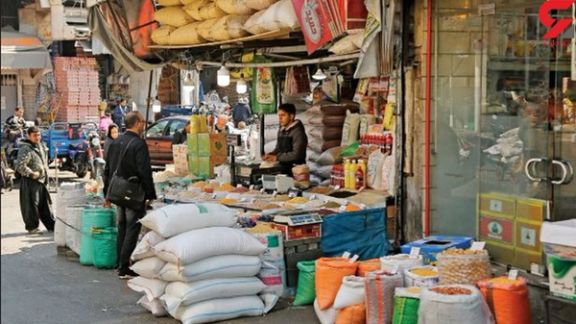Iran Ministry Report Says Food Prices Rising Alarmingly

A report published Monday by Iran's cooperatives, labor and social welfare ministry showed prices of most staple foods rising beyond level it calls critical.

A report published Monday by Iran's cooperatives, labor and social welfare ministry showed prices of most staple foods rising beyond level it calls critical.
Based on 24 food items in the past 12 months, the report divided price increases into three categories of acceptable, alarming, and critical. The last it defined as a monthly increase of 2 percent, or an annual rate of 27 percent.
But the report claimed prices for the 24 items had risen 83.3 percent in the past 12 months. It said that “essential food items” – including the ones surveyed in October, were up more than 60 percent in October year on year.
The 24 food items included rice, chicken, dairy products (milk, yoghurt, cheese, butter), eggs, cooking oil, tea, sugar, beans, lentils, vegetables (cucumbers, tomatoes, potatoes), and fruit (oranges, apples, bananas).
The prices of three of the 24 items, including potatoes, increased by over 10 percent in October alone, while five other items – including cooking oil and red meat – dropped around 1 percent.
The report was released a day after President Ebrahim Raisi's (Raeesi) live televised interview Sunday in which he said curbing inflation would be a priority target of his government.
Quoting the ministry's report, the reformist Arman-e Melli newspaper Tuesday warned "food poverty” would have “irreparable consequences.
The paper quoted Morteza Afghah, an economist at the Shahid Chamran University of Ahvaz, that “the income of a group of the society is no longer sufficient even for…their minimum food requirements. Afhgah said that “in Iran people become rich when they are close to politically powerful groups and this amplifies the dissatisfaction of people.”
Those conservatives who follow Supreme Leader Ali Khamenei’s political guidance claim that a "resistance economy" based on self-reliance is the only way to recover from the damage inflicted by United States ‘maximum pressure’ sanctions introduced in 2018 when the US left the 2015 nuclear deal. After economic growth of 13.4 percent in 2017, the Iranian economy went into recession from which it has not really recovered.
The government, including the Central Bank, have stopped publishing critical economic data, which makes it hard to judge how bad the situation is. But the annual rate of inflation is around 45 percent and the national currency has dropped close to an all-time low.
The Iranian Labour News Agency (ILNA) warned Wednesday that those on low incomes could no longer cut down on food consumption without serious health consequences, even as they faced rising costs for housing, education, healthcare, and transport.
"Workers have already curbed their monthly spending,” ILNA wrote. “Leisure, clothing, furniture and appliances were given up long ago. When it comes to food, they have to be content with only one warm meal, often of poor nutritional value. But can they give up what is necessary for remaining alive?"